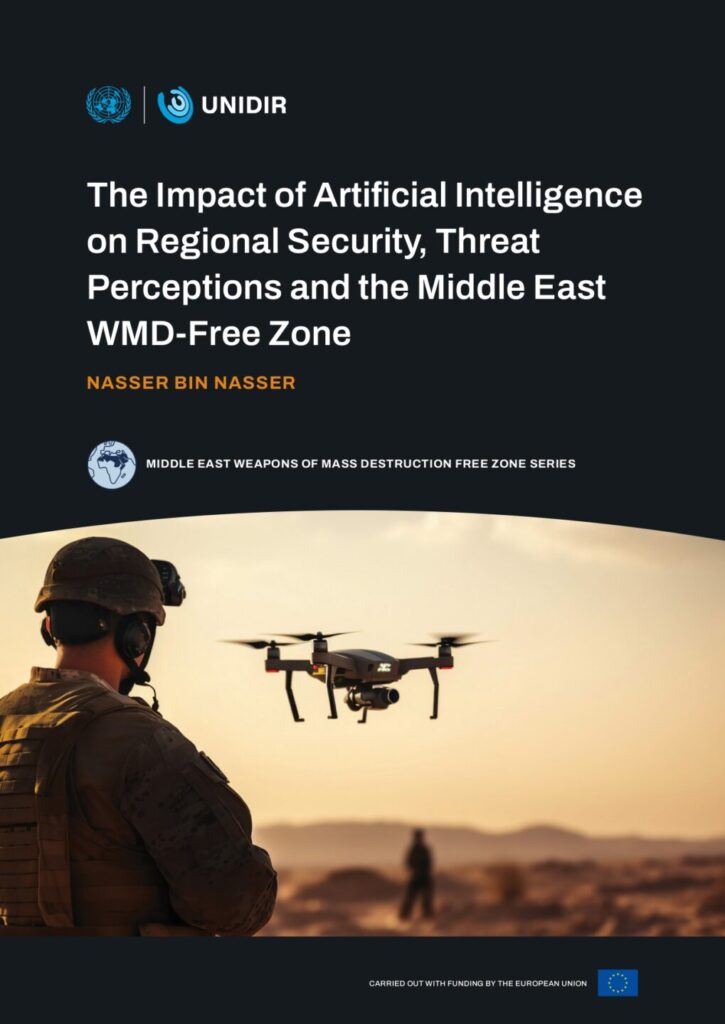With significant advancements in artificial intelligence (AI), many countries have been seeking to integrate these technologies into military and defence industries, including in the Middle East. In this publication, the author examines and analyzes the impact of AI on regional security, weapons of mass destruction (WMD), proliferation-related risks in the Middle East, and its potential influence on the initiative to establish a WMD-Free Zone in the region.
The author examines plausible scenarios, such as the emergence of an arms race in military applications of AI among regional states, which could either increase WMD proliferation risks in the region or, conversely, help reduce them. The paper also discusses key factors AI may have in the negotiations to establish a WMD-Free Zone, including urgency and the potential technical benefits of AI in arms control processes.
Citation: Nasser bin Nasser, “The Impact of Artificial Intelligence on Regional Security, Threat Perceptions and the Middle East WMD-Free Zone”, UNIDIR, Geneva, 2025, https://www.doi.org/10.37559/MEWMDFZ/2025/ZoneAI.
